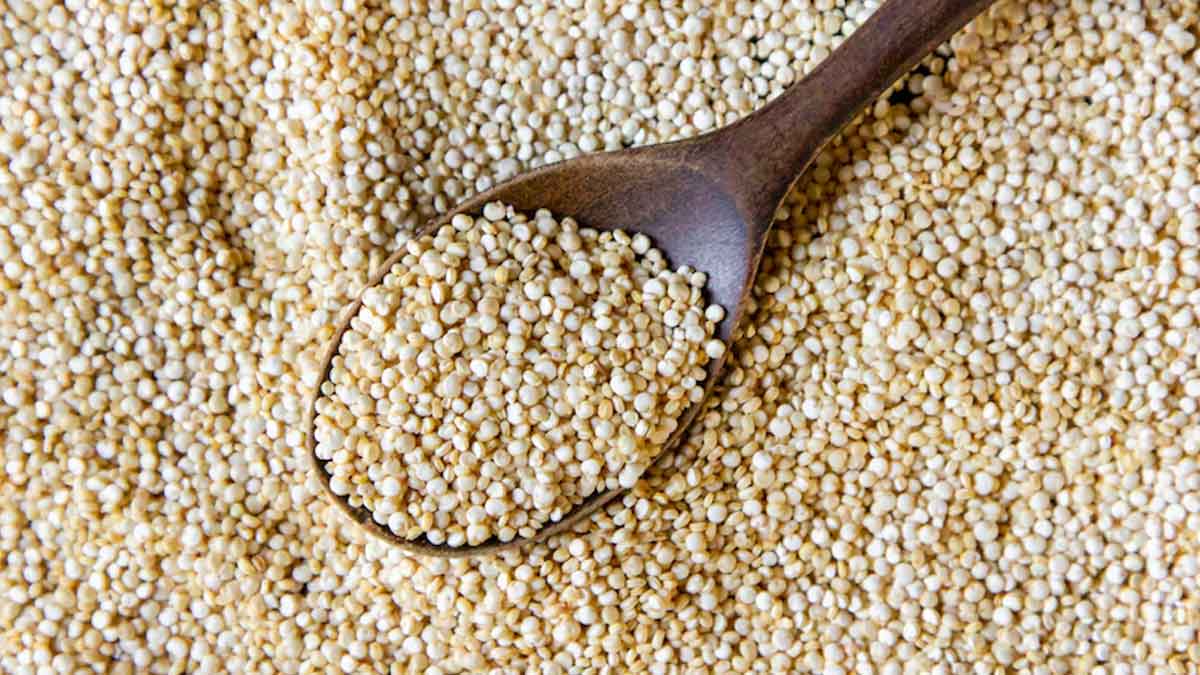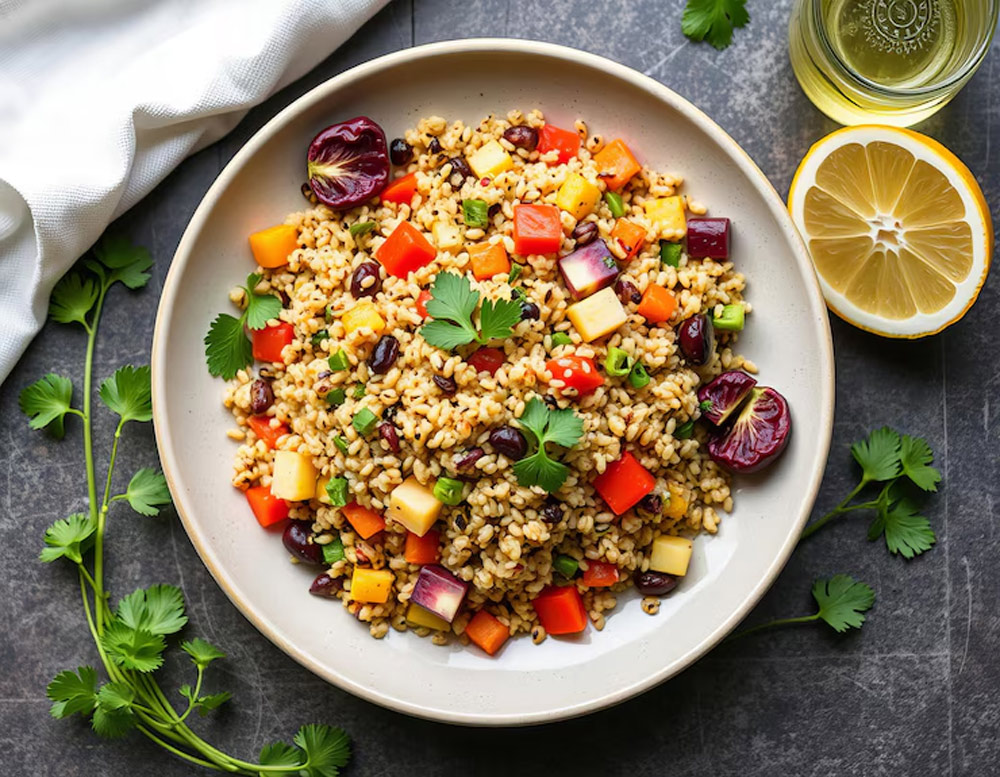
Quinoa (pronounced keen-wah), often hailed as a superfood, has gained popularity among health enthusiasts for its remarkable nutritional profile and potential weight loss benefits. This ancient grain, originally cultivated in the Andes, is a powerhouse of protein, fibre, and essential nutrients, making it a valuable addition to a weight loss diet. In this article, we’ll delve into how quinoa can aid in weight management, backed by scientific studies and expert opinions.
Table of Content:-
Quinoa is a complete protein source, meaning it contains all nine essential amino acids that the body cannot produce on its own. This is particularly beneficial for those following vegetarian or vegan diets, as it provides a plant-based source of high-quality protein. Additionally, quinoa is rich in dietary fibre, magnesium, iron, potassium, and vitamins B and E. Its low glycemic index makes it an excellent choice for maintaining stable blood sugar levels, reducing hunger pangs, and preventing overeating.
1. High in Protein
Protein is crucial for weight loss as it increases the feeling of fullness, reduces appetite, and boosts metabolism. A study published in the American Journal of Clinical Nutrition highlighted that diets high in protein can increase the thermic effect of food, which is the amount of energy required to digest, absorb, and metabolise food. Quinoa, with around 8 grams of protein per cup, helps you stay full longer, curbing unnecessary snacking and reducing overall calorie intake.

2. Rich in Dietary Fibre
Fibre plays a key role in weight management by promoting satiety and regulating digestion. Quinoa contains approximately 5 grams of dietary fibre per cup, which is significantly higher than many other grains. According to a study in the Journal of Nutrition, increased fibre intake is associated with lower body weight and a reduced risk of weight gain over time. The soluble fibre in quinoa forms a gel-like substance in the stomach, slowing down the absorption of nutrients and prolonging the feeling of fullness.
Also read: 7 Reasons Why You Should Eat Quinoa
3. Low Glycemic Index
Quinoa has a low glycemic index (GI), which means it causes a slower and more gradual rise in blood sugar levels compared to high-GI foods like white rice or bread. Foods with a low GI help prevent spikes and crashes in blood sugar, which can trigger cravings and overeating. A study published in the Journal of Clinical Nutrition suggests that diets based on low-GI foods are effective in promoting weight loss and improving insulin sensitivity, making quinoa a smart choice for those looking to shed pounds.
4. Boosts Metabolism
The high-quality protein content in quinoa not only keeps you satiated but also helps in building lean muscle mass. Muscle tissue burns more calories at rest compared to fat tissue, thereby enhancing your basal metabolic rate (BMR). The presence of nutrients like magnesium and vitamin B6 in quinoa further supports metabolic processes, helping your body to convert food into energy more efficiently.
Also read: Red Quinoa Vs Black Quinoa Vs White Quinoa: Which One Is The Healthiest?

How to Incorporate Quinoa into Your Diet
Quinoa is incredibly versatile and can be used in a variety of dishes, from salads to soups, and even as a replacement for rice or pasta. Here are a few ideas to get you started:
Quinoa Salad: Combine cooked quinoa with fresh vegetables, herbs, and a light vinaigrette for a nutritious and filling salad.
Quinoa Breakfast Bowl: Mix quinoa with fruits, nuts, and a drizzle of honey or maple syrup for a protein-packed breakfast.
Quinoa Stir-fry: Use quinoa as a base for a vegetable stir-fry, adding lean protein like chicken or tofu for a balanced meal.
Quinoa Soup: Add quinoa to your favourite vegetable or chicken soup recipe to increase its nutritional value and satiety factor.
Conclusion
Incorporating quinoa into your diet can be a simple yet effective way to support your weight loss journey. Its high protein and fibre content, combined with a low glycemic index, make it a powerful ally in controlling appetite, boosting metabolism, and maintaining stable energy levels throughout the day. Backed by scientific research, quinoa stands out as a nutrient-dense grain that not only aids in weight management but also contributes to overall health and well-being.
For those looking to achieve a healthy weight, adding this versatile and delicious grain to your meals could be a game-changer. So, why not give quinoa a try and see the benefits for yourself?
Also watch this video
How we keep this article up to date:
We work with experts and keep a close eye on the latest in health and wellness. Whenever there is a new research or helpful information, we update our articles with accurate and useful advice.
Current Version